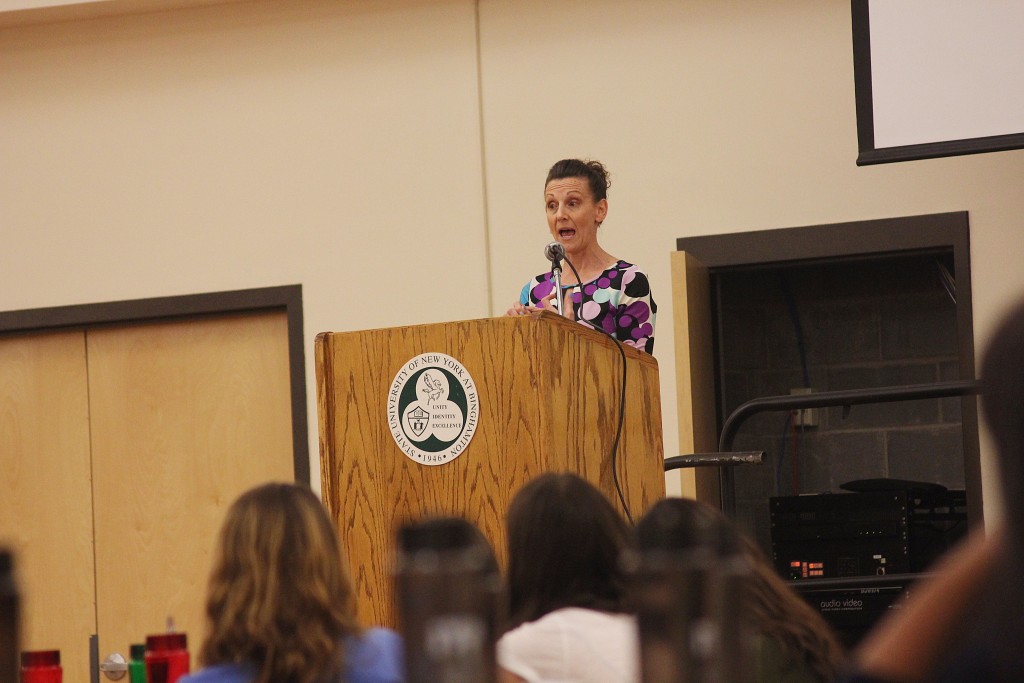
Kristen Hodge is a wife, mother, businesswoman and sexual assault survivor. And on Tuesday evening, she spoke to students at Binghamton University about her story.
The Interpersonal Violence Prevention (IVP) program, which is a part of the Dean of Students Office at BU, started off Sexual Assault Awareness Month in the Mandela Room with Hodge as the keynote speaker. She talked about her life and the road from rape victim to survivor to advocate and certified rape counselor.
Doris Cheung, a case manager and advocate at the Dean of Students Office, said she wanted someone to speak to students about their own experiences in college and was grateful that Hodge was open to the task.
“I really want students to know they are not alone and we are here to help in any way you need,” Cheung said.
After being introduced by Cheung, Hodge described the first time she was sexually assaulted during her sophomore year of college at the University of Iowa, when she was pinned down by a male student in his bed.
“I know I had said ‘no’ and I know my body language had said ‘no,’” Hodge said. “But at that moment I was 19, I was scared and I was frozen.”
Hodge said she did not tell a single person after her attack and, in doing so, remained a victim. She said that she did not speak to anybody about the event until nine months after getting married, when she was attacked again on an early morning run and dragged into the woods.
“I realized I couldn’t keep silent because if I did that I would continue to be a victim and I would be somewhat responsible if this man did this to somebody else,” Hodge said.
Hodge said that by speaking up for herself and doing whatever she could to help other victims, she became a survivor and reclaimed her power.
“We don’t get to choose the life we are given,” Hodge said. “But we do get to chose how we live that life, and I’ve chosen to live it as a survivor. I’ve chosen to take that power back from my attackers to empower myself.”
According to Cheung, college students are in the demographic which is most likely to be sexually assaulted in America. One in four women and one in 15 men will be sexually assaulted while in college, and Hodge said one of the main ways to change rape culture is to change the way we view and talk about sexual assaults. She emphasized that a dialogue needs to emerge among men in order to combat the issue of sexual assault.
“It doesn’t matter how much you had to drink or what you were wearing, it doesn’t matter if you think you led them on — ‘no’ means no,” Hodge said.
Mark Ochweri, a senior majoring in economics, said he attended the event because he wanted to become a better ally in understanding gender dynamics in rape culture.
“The moment that stood out most in my mind is when the women in the room started describing how the male gaze intersects with their lives,” Ochweri said. “Narratives of how fear prevails even the most common tasks was very touching.”
IVP offers confidential, private or anonymous support for anyone who wishes to speak to someone about assault experiences. Cheung said she and her office provide different avenues of support depending on what a victim wants or needs, and she hopes having Hodge speak would empower other victims to seek out help and support.
“We cannot just think that it doesn’t happen and not talk about it,” Cheung said. “We have to talk about it, we have to try and do something about it and change the culture around it.”


